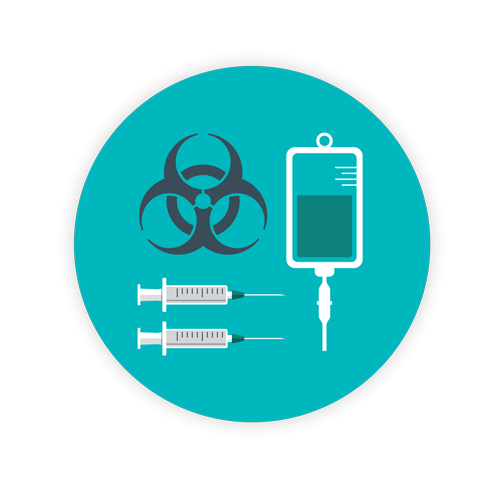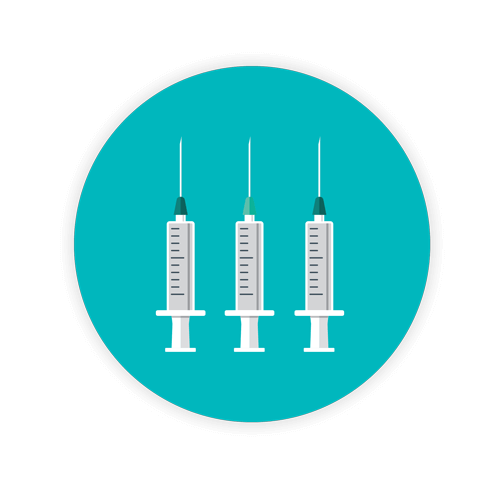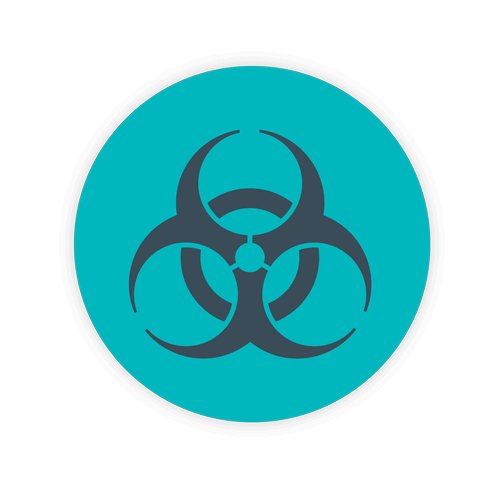Guide to Illinois Medical Waste Regulations

Illinois, like other states, has its own definitions of medical waste and how to deal with it, whether you’re a hospital, a clinic, or an outpatient treatment center. Wherever you practice or work in the healthcare field in Illinois, the state has numerous definitions and regulations regarding medical waste disposal that you need to be aware of.
The long arm of the law will reach out and find you if you’re not compliant with federal and state regulations regarding healthcare waste.
Illinois classifies medical waste issues into four primary categories:
- Biohazard waste regulations
- Potentially infectious medical waste
- Sharps disposal
- Medical waste requirements regarding red bags
Each of the categories have rules and guidelines to how that type of waste is to be handled. Healthcare waste management is a big deal in Illinois.
Illinois basic guidelines for medical waste generators
As with other states, information regarding general or specific requirements can be found on numerous websites. In Illinois, much of this information can be found through the Illinois Environmental Protection Agency.
As always, it’s important for medical waste generators of any kind to be aware of how their particular state defines various medical waste streams. For example, in Illinois, potentially infectious medical waste is a type of waste generated in the process of:
- Providing medical services in regard to immunization, diagnosis, or treatment. This applies to both humans and animals;
- Research that involves delivery of medical services;
- Processes in testing or production of biological waste.
In Illinois, Title XV specifies seven types of potentially infectious medical waste. These types include:
- Animal waste
- Cultures and stocks
- Human pathological waste
- Human blood and blood products
- Used sharps
- Unused sharps
- Isolation waste
Illinois goes so far as to determine how potentially infectious medical waste (PIMW) should be segregated. In this state, three categories are identified and mandated: sharps, oversized potentially infectious medical waste, and all other potentially infectious medical waste.
What about other types of waste?
Medical waste generators need to look in more than one location when it comes to laws and regulations regarding medical waste segregation. It’s your responsibility to understand the difference in terminology between anatomical waste, chemo waste, and biohazard waste disposal. For example, Illinois’s Division of Research Safety specifically defines hazardous (chemical) waste, as any type of solid or combination of solid wastes that may contain infectious characteristics, meaning that it falls under the standards of characteristic waste in regard to its corrosivity, ignite ability, reactivity, or toxicity.
Like other states, Illinois has specifications in regard to how medical waste of all types should be labeled, transported, stored, or transferred. It is illegal in Illinois to dispose of any untreated medical waste – that includes potentially infectious waste, in landfills, until pretreatment has eliminated potential for infection.
Sharps waste in Illinois, “must be eliminated and the sharps must either be rendered unrecognizable or packaged in accordance with the regulations prior to disposal.” The guidelines is found under the Landfills Special Requirements section.
What about sharps container guidelines in Illinois
Of one of the greatest concerns when it comes to medical waste handling, storage, and treatment is the potential for sharps injury or needlestick injury due to improperly disposed of sharps.
In Illinois, used sharps as well as unused sharps are defined as PIMW. Requirements for the treatment and disposal of such wastes are found under Title XV of the Illinois Environmental Protection Act, and also fall under the purview of the Illinois Pollution Control Board in accordance with Title VII of that act.
Wording must be carefully examined. In Illinois, the term ‘potentially infectious medical waste’ doesn’t include sharps that have been treated prior to disposal to eliminate infectious nature and “which of been rendered unrecognizable by treatment.”
Guidelines specify that PIMW such as sharps, must be placed in a sharps container that is leak- resistant, rigid, moisture resistant, and strong enough to resist or prevent holes, tearing, or bursting. It should be noted that sharps include more than needles, but can also imply scalpels, pipettes, and glass products, which are also required to be packaged in puncture-resistant containers.
Labeling of such containers is also carefully specified under guidelines. Following such guidelines is the responsibility of the waste generator. It’s not just a moral and ethical responsibility, it’s the law!
What about biohazard waste regulations?
Medical waste disposal regulations in Illinois are under the purview of the EPA. Because Illinois classifieds medical waste as “potentially infectious medical waste”, medical waste management and segregation issues for any medical waste generator should review the detailed disposal requirements on EPA’s website.
Information from the Illinois Joint Committee on Administrative Rules (administrative code) is also an excellent resource in regard to laws and regulations pertaining to public health and environmental protection.
As an example of the degree of specificity involved in Illinois regulations, take a look at Title 35: environmental protection. It breaks down like this:
Title 35: Environmental protection
-
Subtitle M: Biological materials
-
Chapter 1: Pollution Control Board
-
Subchapter B: Potentially infectious medical wastes
- Part 1422: Design and operation of facilities
-
Subchapter B: Potentially infectious medical wastes
-
Chapter 1: Pollution Control Board
Disposal of medical waste falls on the shoulders of the generator
When it comes to medical waste disposal, healthcare waste management, hazardous waste disposal, or waste segregation in Illinois, medical waste generators have no excuse for not accessing the rules and regulations regarding medical waste disposal. It is also the responsibility of the medical waste generator to ensure that medical waste pickup companies hired by the waste generator follow the rules as well.
Yes, you read that correctly. Medical waste generators are responsible for ensuring that any medical sharps disposal companies or medical waste pickup companies dealing with their medical waste are following federal and state rules and regulations. Every medical waste generator should take the “cradle-to-grave” approach to healthcare waste management.
Daniels Health provides sustainable, effective, and services for medical waste generators, whether veterinary facilities or clinics, dialysis centers, or hospitals are involved. Our goal is to promote the use of reusable containers, proper sharps container placement, and proper hazardous waste management and disposal.
If you would like further help navigating Illinois' medical waste regulations, call one of our clinical experts today! Alternatively find out more about our Illinois operations and service capabilities on our Illinois service page here.
